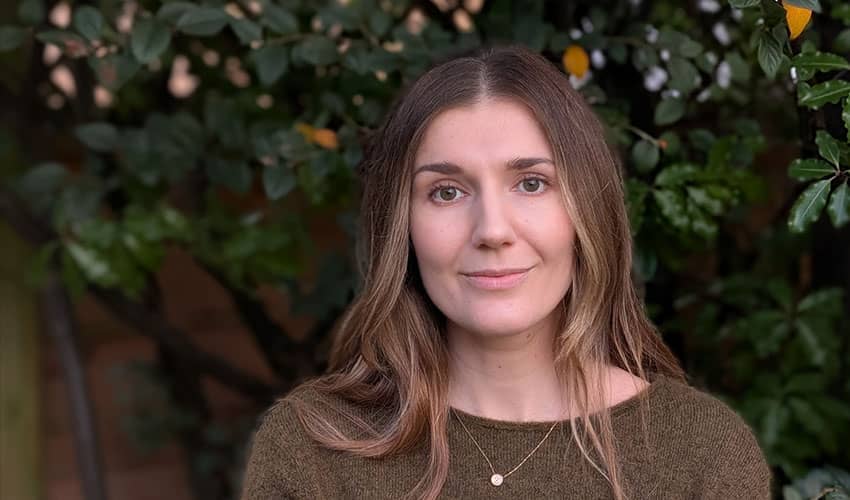UWE Bristol researchers to investigate extent of microplastic crisis

Researchers from UWE Bristol’s Air Quality Management Resource Centre have been awarded funding for an innovative new project looking at the presence of airborne microplastics in people’s homes.
Microplastics (plastic pieces smaller than 5 millimetres) have become increasingly prevalent in the natural world. Studies show that they are not only present in oceans, but also the air, our food, drinking water and even our bodies.
Working alongside the University of Leeds, the research team at UWE Bristol will investigate the presence of airborne microplastics in people’s homes to yield new insight into where the particles come from.
The project, funded by UK Research and Innovation (UKRI), uses two different experiments to measure the tiny plastic fibres that are given off by clothes and other materials, and are present around us every day.
Citizens will place passive samplers in their homes, using low-cost microscopes to see and take pictures of their samples. They will then use machine vision approaches to characterise their own samples by size/shape/colour etc., at home.
The research team will also undertake confirmatory analyses so citizens can see what types of plastic (if any) are present in their samples, allowing the team to build an understanding of airborne microplastic generation at home.
Dr Ben Williams, Research Fellow for the Air Quality Management Resource Centre at UWE Bristol, said: “We’re very excited to be able to undertake this research with citizens in Bristol and Bradford. The research community is very aware of the impacts of microplastics on the marine environment but little is known about the presence, origin or potential impacts of microplastics in air.
“This study has citizens at its heart, pushing the knowledge envelope and addressing an important policy gap of this emerging field.”
Research into the health effects of breathing microplastics is still very young, but many of the particles are small enough to pass by our bodies natural defences and enter our lungs.
Dr Kirsty Pringle, research fellow in the Institute for Climate and Atmospheric Research at the University of Leeds, said: “This project is particularly important to understand levels of pollution in houses because it is our homes where we tend to spend the majority of our time, so any health effects are likely to be more significant.”
“If microplastics can enter the lungs they may pose some risk to health. But we really need to understand more about what types of microplastics exist in the air in our homes before we can understand the health effects.”
UKRI has invested £1.46m across five research projects looking at important issues such as mental health, migration and airborne microplastics.
Tom Saunders, Head of Public Engagement at UKRI, said: “In the last year, science, research and innovation have become something that people talk about every day, as we have seen how research directly affects our daily lives.
“These exciting new projects will see researchers and communities collaborate on a range of issues that affect our societies, from plastic pollution to mental health, supporting people from outside of the research and innovation system to bring their unique experiences and perspectives into the research process, helping them to develop new skills and knowledge which they can use in their own lives.”
Related news

16 February 2026
UWE Bristol researchers awarded grant to explore impact of asset recovery on offenders
UWE Bristol academics have been awarded funding to explore of the impact of asset recovery on deterring offender behaviour and disrupting crime networks.

10 February 2026
Work by UWE Bristol lecturer features in Government’s National Cancer Plan
Work by a UWE Bristol academic has been included in the Government’s National Cancer Plan.

23 January 2026
On-demand minibus services beneficial in rural areas but face financial challenges, trials suggest
Trials of ‘demand responsive transport’ minibus services boosted connectivity for people in rural and suburban areas, according to a new report produced by UWE Bristol researchers.

18 December 2025
UWE Bristol professor appointed National Institute for Health and Care Excellence CEO
Jonathan Benger CBE, Professor of Emergency Care at UWE Bristol, has been appointed as the new chief executive officer of the National Institute for Health and Care Excellence (NICE).

17 December 2025
Findings revealed from first UK study into experiences of mothers who are survivors of rape pregnancy
UWE Bristol academics have revealed the findings of the first UK-based study of the experiences of mothers who are survivors of rape pregnancy.

11 December 2025
Social media influencer work is far more demanding than it looks, research finds
A study exploring the mental health impacts of social media influencer work has revealed that life online is far more demanding than it appears.

25 November 2025
UWE Bristol experts join film Q&A exploring music and melodrama
Academics will take part in the Cary Comes Home Festival, with a post-screening Q&A exploring music, melodrama and emotional storytelling in classic cinema.

17 November 2025
Urgent reform needed to support ambulance-delivered end of life care, study finds
More than three quarters (78 per cent) of paramedics sometimes fear doing the wrong thing when caring for people in the last year of life, new research has found.

13 November 2025
Bristol’s screen industry experiences “boom-and-bust cycle” after post-pandemic recovery, new research from UWE Bristol finds
New research from UWE Bristol provides detailed insight into Bristol's screen sector.

13 November 2025
New AI research to revolutionise animal welfare
A UWE Bristol research project will combine behavioural science and AI to create technology that understands not only what animals do, but how they feel.

10 November 2025
Lessons from Low Traffic Neighbourhoods will drive better public engagement, study finds
Lessons from Low Traffic Neighbourhoods have informed a new toolkit to improve engagement with the public on challenging local street issues.

06 November 2025
First-of-its-kind study aims to help more people spend their final days at home
A new study will explore how architectural design could support end-of-life care in domestic settings.






